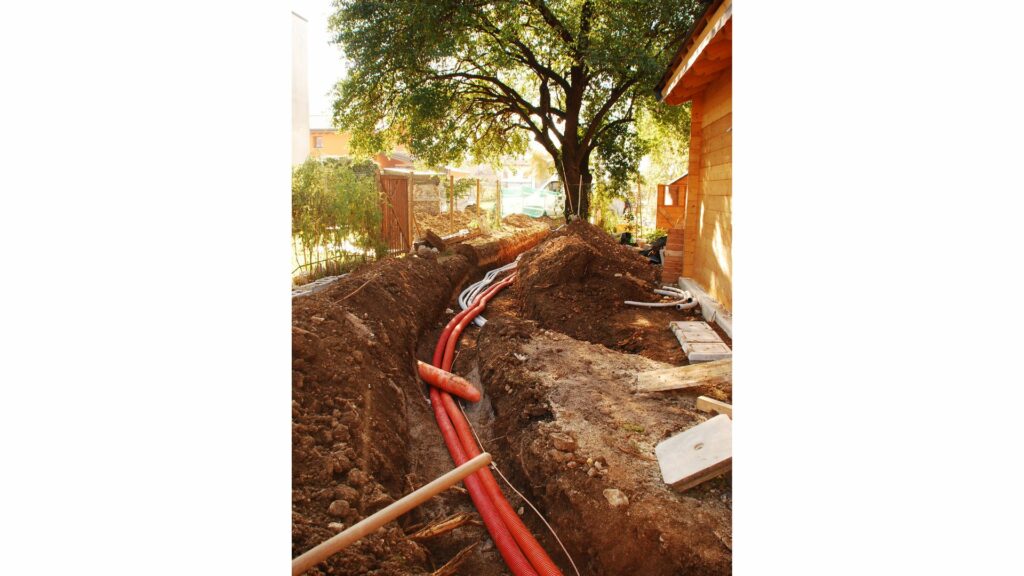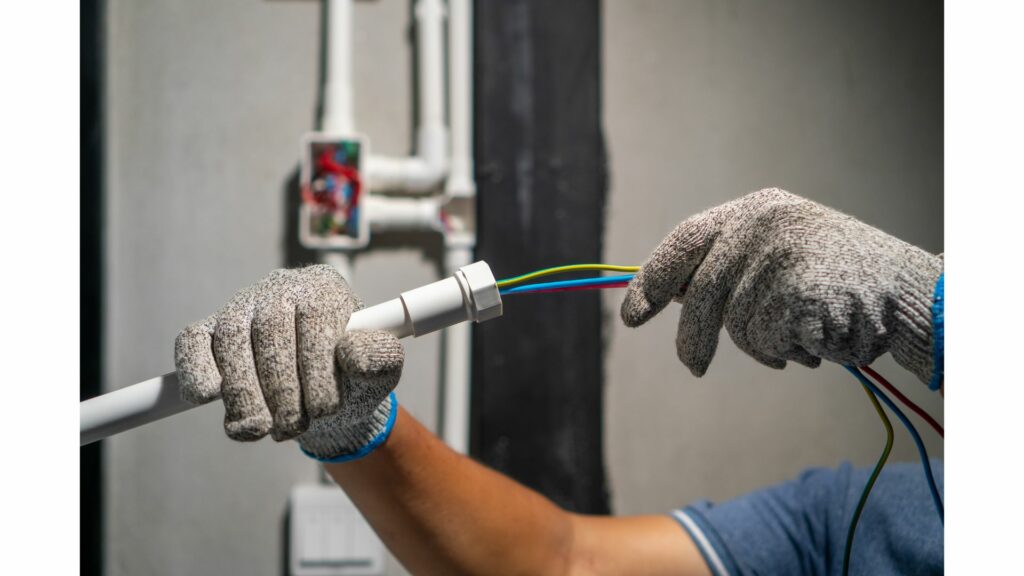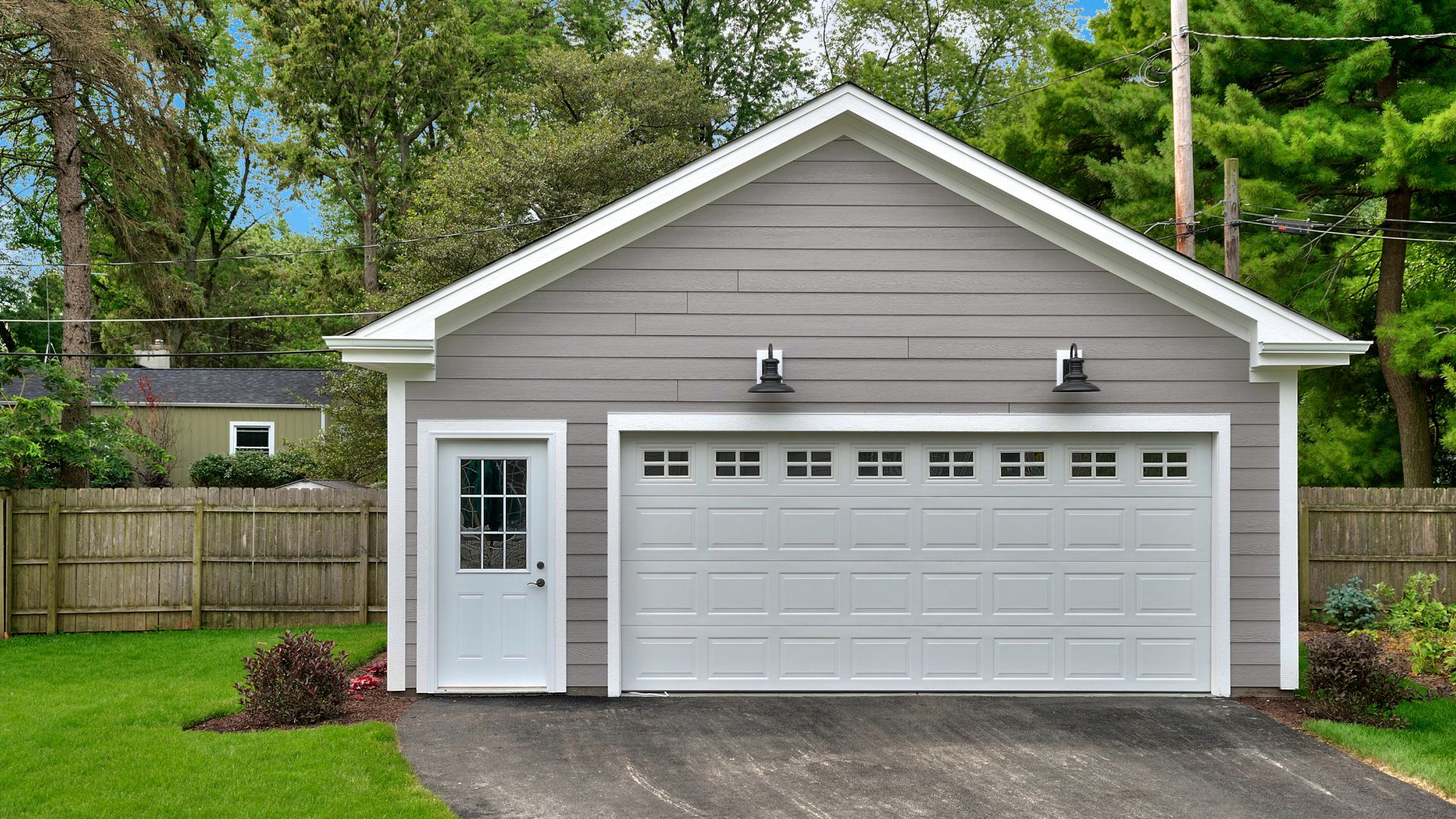Don’t let the prospect of wiring a detached garage concern you. The process is easier and cheaper than bringing power to the main house. Although, various factors can influence the cost.
The NEC expects to see a 20A circuit with one or more GFCI-protected receptacles in a garage.
Your expenses may spike because of the cost of running an underground feeder cable to the circuit in the garage. But many homeowners are content to extend wiring from the main house to the detached garage without relying on feeder cables, an undertaking that amounts to $1,500 or even less. Some consumers may spend as much as $2,500, but you can lower your expenditure by planning adequately beforehand.
How Much Does It Cost To Run Power To A Detached Garage?
| Labor Cost | 2 hrs x $100 | $200 |
| Wire Cost | $0.70 x 20 ft | $14 |
| Conduit Cost | $1.60 x 20 ft | $32 |
| Garage Wiring Cost | 288 sq ft | $1440 |
| Average Cost | – | $1686 |
How To Calculate The Average Cost To Run Power To A Detached Garage?
Estimating the cost of running power to a detached garage is not easy because you must account for various variables, including:
1). Labor Cost
Bringing power to a detached garage is time-consuming. The process involves the following:

- You start by digging a trench to the garage. This means consulting your utility service provider and making a plan that bypasses water, electric, and gas lines. You don’t want to puncture a pre-existing pipe.
- Place the wire in the trench. This process will take longer if you need a conduit. Fishing wires through the tubing is not easy.
- Make a hole in the wall where necessary and guide the wire to the electrical panel. This assumes that you installed an electrical panel beforehand.
- Connect the wires to the electrical panel.
- Install GFCI technology if your local code calls for it.
- Cover the trench.
Can you perform all these tasks yourself? Some homeowners are savvy enough to connect conductors to the correct terminals. But can you dig a trench? What about fishing wires through a pipe?
Wiring the detached garage yourself will save you from exorbitant labor costs. But if you don’t have the skill, experience, or even the time, an electrician could charge you $100 or more per hour to do this work. If you’re lucky, the contractor will install the wiring without digging any trenches, which lowers the labor costs by shortening the process.
2). Where are you located?
The area influences labor costs. It may also affect how much excavating you must do to install underground cables. What kind of weather do you get? Is the ground solid and firm or wet and soggy? This will determine the type of cabling you will use and the depths you will dig.
3). What is the size of the detached garage?

The bigger the structure, the more expensive the wiring project becomes. For instance, it will cost you $4000 to wire 800 sq. ft. That figure leaps to $12,000 for 2,500 sq. ft.
Home Advisor has a table showing the cost of wiring a structure based on the square footage. Once you measure your detached garage, the table will show you the costs you can expect to incur depending on the size you have recorded.
4). Is the detached garage new or old?
You have two significant concerns. First of all, some older structures are delicate, and you can’t afford to punch random holes through their walls. This may force you to run the wires along a longer route, increasing your expenses in the process.
Secondly, are you running power to a structure that never had electricity, to begin with? Or are you replacing old wiring? Bringing power to a detached garage for the first time is cheaper. The process is even more affordable if the garage is incomplete because you don’t have to break and patch the walls, floor, and ceiling.
On the other hand, a contractor cannot reconnect a garage that was previously connected to power without taking out the old wiring, especially if the structure is ancient. You will spend more money if you’re trying to remodel an old detached garage.
5). Conduits

Not only are conduits challenging to use, but they will increase your expenses. After all, electrical tubing is not free. ½-inch rigid metal conduits to cost you $0.77 per foot. The larger the size, the more money you will pay. For instance, 1-inch rigid metal conduits are $1.60 per foot.
Unfortunately, you cannot choose to forego conduits. Contractors deploy them when the conditions are a threat to the wires. Therefore, you must incur the cost of buying a pipe if your electrician thinks you need one.
6). The type of wiring matters.
For instance, you can get coaxial cable for $0.35 per foot, while underground feeder lines will cost you $0.70 per foot. Additionally, you will spend more money on copper than aluminum. Keep that in mind when you make your selection.
7). Don’t ignore the local code.
It will shape your decisions and selections. For instance, the code may force you to buy conduits even when you don’t need them. It may also compel you to apply for a permit before you can DIY this project.
Angi expects the cost of a permit to range between $25 and $200. Permits sound like a waste of time and money. However, they might be cheaper than hiring a professional, especially if your project is labor-intensive. Keep in mind that contractors charge by the hour.
8). How much distance do you have to cover?
The bigger the distance, the longer the wires you require. The voltage drop is another significant concern. It increases with the distance, forcing you to invest in cables with a higher gauge.
Higher gauges have bigger price tags. The gauge is usually determined by the size of the circuit, which is, in turn, shaped by the load. You can’t select the circuit size without identifying the number of amps you need to run all your equipment in the garage.
Tips To Minimize The Cost
- Strangely enough, using a licensed electrician may save you more money in the long run because the professional will protect you from the costly mistakes you are more likely to make when you extend power to the detached garage by yourself. DIY projects are only cheap if you know what you’re doing.
- You can save even more money by using a company instead of an individual. A thorough investigation of all the electrical firms in your area will enable you to identify companies with competitive prices. Some of those companies provide discounts to new customers.
- Use aluminum wiring instead of copper. Copper has greater conductivity. But you can replicate the benefits of copper if you use aluminum lines with a thicker gauge. Aluminum is cheaper than copper.
- Use the shortest route to your destination to reduce the amount of wiring you need. This means planning adequately beforehand. Create a layout that uses the shortest wiring.
- Use conduits where possible to enhance the durability of the wires. Otherwise, harsh conditions may compel you to replace damaged lines more frequently than you would like. Conduits will cost you money in the short term. However, they will save you money in the long term.
Related post:

